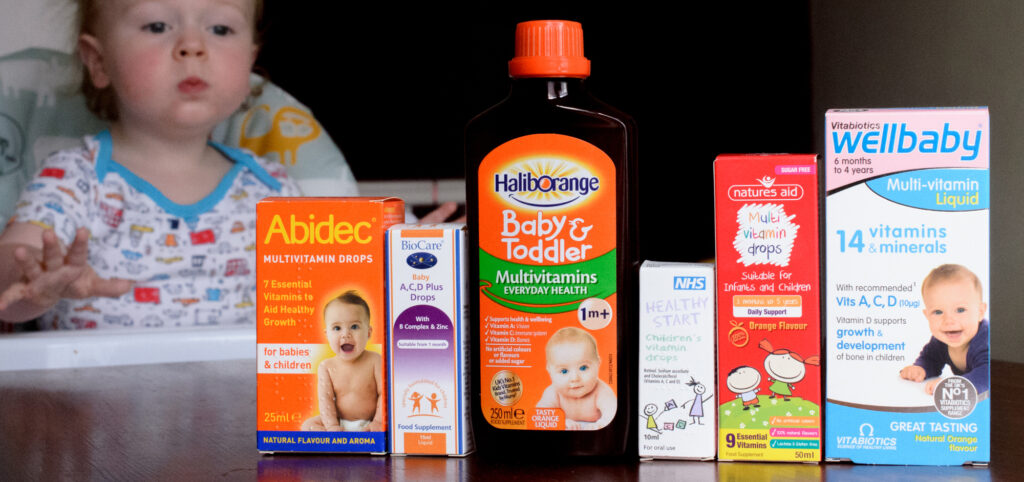Vitamins are exogenous substances that the body does not synthesize. They are required for the proper development and functioning of the body. Therefore, they must be supplied either with food or in the form of appropriate preparations. They must be taken in strictly defined doses, because their excess (hypervitaminosis) and deficiency (hypovitaminosis), as well as lack (avitaminosis), are detrimental to the proper functioning of the body. Let’s take a look at the key information on vitamins for babies and toddlers.
Vitamins For Babies
A healthy baby does not need to receive additional multivitamin supplements if it is breastfed and its mother maintains a healthy and balanced diet and has no health issues. In such a case, the baby receives all the necessary nutrients and minerals, including vitamins, with breast milk. Bottle-fed babies also receive adequate portions of vitamins and minerals along with other infant formula ingredients.
The first months of a baby’s life are accompanied by intensive cerebral cortex development and bone growth, which means the need to build up large amounts of calcium in the bones. It needs to be provided to the baby with its diet, but calcium alone is not enough. Vitamin D3 is also critical. In summer, the total need for vitamin D3 is covered naturally when the baby is outside because this vitamin is synthesized in the body under the sun’s influence. In autumn and winter, this vitamin must be provided to the baby additionally. Pediatricians usually recommend 1–2 drops of vitamin D3 per day as a preventive measure during infancy in the fall and winter.
Click here – How Can Moldova Be A Suitable Destination For Profitable Bitcoin Trading?
Vitamins For Toddlers
Multivitamins available in pharmacies are overrated. The problem is that people tend to underestimate the importance of a good diet and overestimate the vitamins enclosed in a pill or jelly. And the facts are that vitamins from pharmaceutical products are poorly digestible. Therefore, it is best to deliver them in a natural form, i.e. with what we can find on our plates every day.
Vitamins are not only vegetables and fruits. Valuable products are wholemeal groats, bread, and pasta. Legumes — beans, peas, chickpeas, and all kinds. Seeds and nuts. Add to these unrefined, fresh-pressed vegetable oils and bee pollen. Let’s not forget about good, highly mineralized mineral waters, which are an excellent source of magnesium, potassium, calcium, and other minerals.
Which Kids May Need Extra Vitamins?
The cause of vitamin and mineral deficiencies may be their insufficient amount in food, but they may also result from malabsorption of a given vitamin in the gastrointestinal tract, food intolerance, or an increased demand for a given ingredient.
In cases where the parents have already taken care of a proper diet and still observe disturbing symptoms in their baby, it may be associated with the need for additional supplementation. Then it is worth consulting a pediatrician. The doctor will help correctly diagnose the cause of the problem, possibly refer the child to additional tests, and recommend an appropriate method of supplementing the nutrients.
Click here – How Do I Open My Garage Door If The Opener Is Broken?






